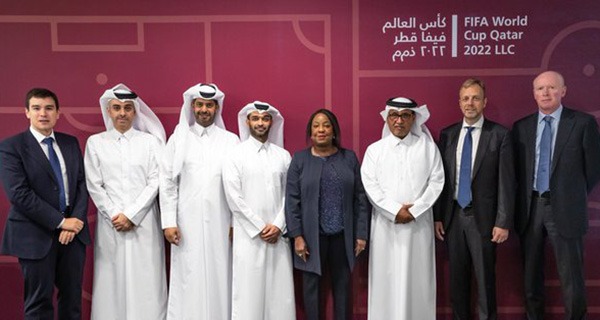DOHA (Qatar): Football lovers in Qatar are waiting for the 2022 FIFA World Cup to happen to show that the Arab region isn’t solely defined by the conflicts and frequent violence acts.
The football’s biggest showpiece, which will be held three years from now, is an excellent opportunity to unite the warring Arabs.
Most non-Arab expats wonder why the Muslims are always at loggerheads in the Middle East.
Is it all about arrogance being wealthy, intolerance or ideological differences that divide the Muslim world?
“We need to break down those perceptions about what we’re,” said Supreme Committee for Delivery & Legacy Secretary General Hassan Al Thawadi in a recent interview.
When I went to cover the 2014 Gulf Cup in Saudi Arabia’s Riyadh, I saw what football meant to the Arabs.
Football great solace for wounded nations
Yemen was and still on fire, but their motley population flocked to the King Fahd International Stadium in Nissan pick-up vans and cars to show solidarity with their footballers.

Football provides a great social distraction from ongoing violence by creating a sense of harmony amongst traditionally divided groups.
But the Gulf Cup, which was won by Qatar, was one such occasion to spread brotherhood among the Arab nations.
But the FIFA tournament will see fans in large numbers from the region — there’ll be Sunni and Shiite Muslims as well as Middle-East Christians as well as Arab nations from North Africa.
“For the Arabs, the World Cup is a symbol of pride,” said one Yemeni journalist in Doha. His house in Aden was been blown into pieces by the Houthi rebels, but his family has found peace and shelter in Qatar.
“The World Cup in Doha constitutes a real opportunity to enlighten the future of the region and will contribute to the recovery of its economy and give clear hope for the youth,” he added.
Qatari officials claimed two billion people live within a four-hour flight radius of Doha.
This means the World Cup, which has been held 10 times out of 20 in Europe, will have a Middle Eastern flavor.











